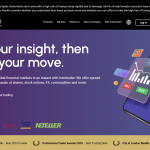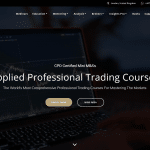Forex brokers are firms or individuals that provide traders with access to the foreign exchange (forex) market, allowing them to buy and sell currency pairs. Brokers act as intermediaries between retail traders and the interbank forex market, offering trading platforms, pricing, execution, and support services.
This article explains the role of forex brokers, how they operate, and what services they offer.
What Does a Forex Broker Do?
- Market Access: Provides traders with platforms (like MetaTrader 4 or 5) to trade currencies.
- Pricing: Offers bid and ask prices for currency pairs, reflecting market conditions plus a spread.
- Order Execution: Facilitates buy and sell orders either internally or by routing to liquidity providers.
- Leverage: Allows traders to control larger positions with smaller capital by offering margin trading.
- Account Management: Handles deposits, withdrawals, and trading account balances.
- Customer Support: Assists traders with technical, trading, and account issues.
Types of Forex Brokers
1. Dealing Desk Brokers (Market Makers)
- Create an internal market for clients and often take the opposite side of trades.
- Offer fixed or variable spreads.
- May have conflicts of interest but provide guaranteed liquidity.
2. No Dealing Desk Brokers (NDD)
- Pass orders directly to liquidity providers or interbank markets.
- Include STP (Straight Through Processing) and ECN (Electronic Communication Network) brokers.
- Provide tighter spreads and transparent pricing.
How Do Forex Brokers Make Money?
- Through spreads (difference between bid and ask price).
- Charging commissions on ECN/STP accounts.
- Swap fees for holding positions overnight.
- Other fees like inactivity or withdrawal fees.
Key Takeaways
- Forex brokers enable retail traders to participate in the global forex market.
- Broker types affect spreads, execution, and potential conflicts of interest.
- Choosing a regulated, transparent broker is critical for safety.
Frequently Asked Questions
What is the role of a forex broker?
To provide access, pricing, and execution services in forex trading.
How do forex brokers make money?
Primarily through spreads, commissions, and fees.
What is leverage in forex trading?
Leverage lets traders control larger positions than their deposit.
Are all forex brokers the same?
No, they differ by execution method, regulation, fees, and platform.
Can I trade forex without a broker?
No, retail traders need brokers to access forex markets.




Leave a Reply
Please log in or register to share your thoughts.